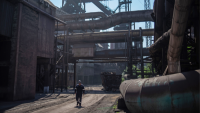
Nato’s dilemma: what to do about Ukraine’s bid to join?
Whe Lithuanian capital with another strategic objective: to gain a seat at Nato’s table.
To Zelenskyy and his government, the US-led alliance represents long-term peace and security. Article 5 of Nato’s treaty is an ironclad mutual-defence clause backed up by American, British and French nuclear weapons.
But Kyiv’s objective goes beyond defence. Through Nato membership, Ukraine would receive an unambiguous ticket into “the west”, a break from centuries of subjugation by Moscow, and the security required for its reconstruction and economic revival.
Yet Ukraine poses a series of questions for Nato’s 31 members. Those questions reach to the heart of the alliance’s purpose, from how prepared its members are to fight a war against Russia to whether Nato’s mutual-defence clause is a security blanket to be thrown around states, or a badge of distinction to be earned.… Seguir leyendo »










